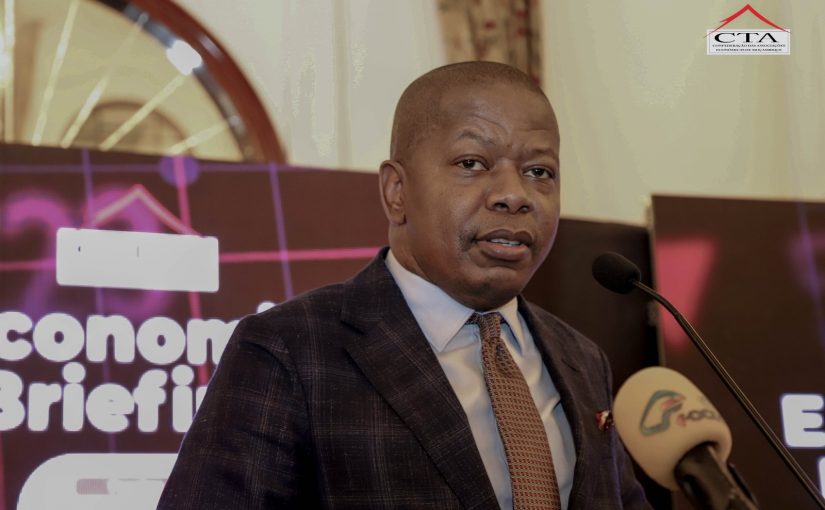President leads inauguration ceremony of new Grindrod Mozambique headquarters building - Watch
Mozambique: CTA urges the State to settle outstanding invoices – around $400M worth

Photo: O País
The Confederation of Economic Associations of Mozambique (CTA) today proposed the inclusion of a heading in the State Budget for 2024 to regularise late payments from the state to entrepreneurs, which the CTA estimates at US$400 million.
“The continuous accumulation by the state of unpaid invoices to suppliers means that our SMEs [small and medium enterprises], for the most part, are financing the Mozambican state, therefore limiting their own growth. In such situations, public expenditure actually ends up being harmful to the economy,” CTA president Agostinho Vuma says.
Speaking in Maputo at the opening of the Economic Briefing, a quarterly CTA event which coincides with the discussion in the Assembly of the Republic of the Economic and Social Plan and State Budget (PESOE) for 2024, Vuma insisted on the government adopting, in that document, a “limit on state indebtedness to the private sector”, thereby putting a stop to the accumulation of late payments.
According to Vuma, this would be a “way to help limit the growth of outstanding invoices, and would also increase discipline” over the state’s accounts. “This would provide predictability and a reasonable economic projection so that our private sector can be more attentive to all situations that affect the performance of companies,” he explained.
Furthermore, the CTA also proposed that the State Budget for next year include a “specific heading” for the payment of late invoices to suppliers of goods and services.
“But also to Mozambican contractors, even if only partially. Because this is what prevents payments being made, and allows the State’s debt to the private sector to accumulate. If we add to it the amount accumulated in late invoices, [currently standing] at around US$400 million, the ‘stock’ of credit to the State is estimated at around US$4.7 billion,” Vuma noted, meaning that the private sector is financing the state to the tune of around 29% of gross domestic product.
“So, we can imagine what this represents for a sector mostly made up of SMEs – SMEs that yearn for growth,” he stated.
Furthermore, Vuma called on the government to launch public tenders “with predictability as to the availability of financial resources”, so that their implementation was possible and companies could comply with agreed time frames.












Leave a Reply
Be the First to Comment!
You must be logged in to post a comment.
You must be logged in to post a comment.